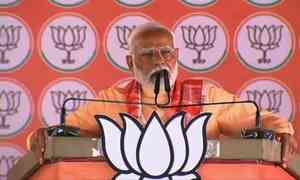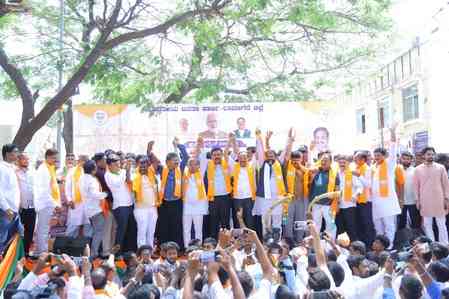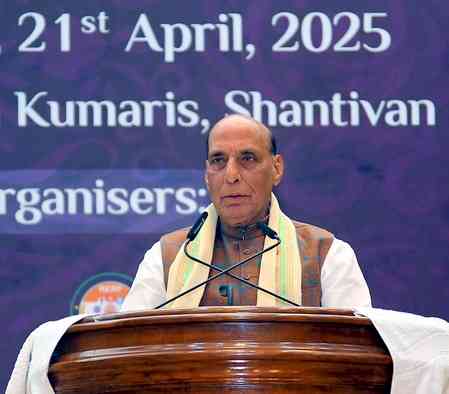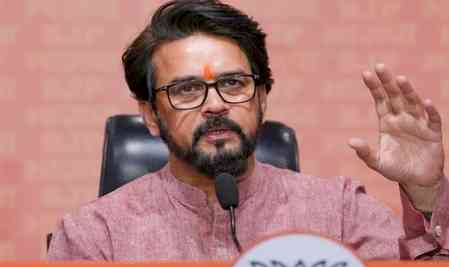Purvanchal will punish those who blocked development in region with a motive: PM Modi
Prime Minister Narendra Modi, addressing back-to-back rallies in Uttar Pradesh on Sunday, hit out at INDIA bloc for their appeasement politics and for prioritising vote bank over developmental works.

New Delhi, May 26 (IANS) Prime Minister Narendra Modi, addressing back-to-back rallies in Uttar Pradesh on Sunday, hit out at INDIA bloc for their appeasement politics and for prioritising vote bank over developmental works.
Addressing a public gathering in Bansgaon, PM Modi said that Samajwadi Party kept the Purvanchal region backward as part of a conspiracy.
He said: "Purvanchal will punish such people again and again. It will never allow such people to set foot in the region.”
PM went on to ask the people of Purvanchal to make sure that those who have opposed the Ram temple, should not get a single seat in Purvanchal.
Prime Minister also spoke about the 2012 manifesto of Samajwadi Party and asked first-time voters whether they were aware of its religion-driven reservation.
“SP had clearly written in its manifesto that the reservation that was given to Dalits would be diverted to Muslims. This is against the spirit of the Constitution but the INDIA bloc people didn’t care about it,” PM Modi told the gathering.
Addressing the rally, the PM said further: “Do you want Congress that works for commission? They want foreign deals so that they can get commission like Bofors. Many countries wanted to buy arms from India but Congress created obstacles. Now UP will soon start making BrahMos.”
He added that people in Pakistan are praying that INDIA bloc comes to power and are appealing for vote jihad. "They want to take the country back. They say they will reimpose Article 370 in Kashmir and scrap CAA. They are implementing the agenda of anti-national forces," he said.
He reminded people of the development done by the BJP government in Purvanchal—from making expressways to a new AIIMS.
“This is just the trailer, so imagine what will happen in the next five years,” he concluded.
--IANS
amita/kvd


 IANS
IANS 










